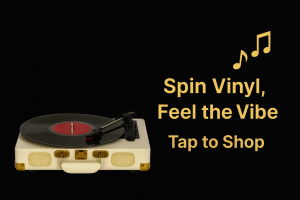Ever heard a song that just makes you want to crank up the volume and rock out?
There’s this one track that’s got such a killer beat and a super catchy chorus, it’s impossible not to get into it.
This song is a total blast from the past, and like some of the best work from classic rock artists, it has this raw energy that still feels fresh today.
It is a banger and the song title is, “The Stroke”, might sound a little weird at first, but trust me, there’s a deeper meaning behind it all.
- Writer: Billy Squier
- Album: Don’t Say No (1981)
- Producer: Mack
📝 Background & Meaning:
“The Stroke” was written by Billy Squier and released as the lead single from his breakthrough album, Don’t Say No, in 1981.
The song became a defining hit for Squier, reaching #17 on the Billboard Hot 100 and becoming a staple on rock radio stations.
While the song’s lyrics might initially seem suggestive or overtly sexual, “The Stroke” is actually a metaphor for the music industry and the transactional relationships between artists and record labels.
Squier uses the imagery of “stroking” as a symbolic reference to how record executives “stroke” their artists—praising them, boosting their egos, and promising them fame—all while exploiting their work for profit.
The song critiques the superficial nature of commercial success in the music business, where artists are often used as commodities.
Despite the biting commentary, the track is delivered with swagger, confidence, and an anthemic energy, making it a hit in both meaning and style.
🎤 Key Themes:
- Music Industry Exploitation: The song comments on how record labels manipulate and profit off artists.
- Power Dynamics: It explores the imbalances of power between artists and executives.
- Deception and Promises: The lyrics highlight the false promises and flattery often used in the industry.
- Commercial Success vs. Artistic Integrity: The song questions whether commercial success is worth the personal and artistic cost.
🎧 Notable Lyrics:
“Stroke me, stroke me / Could be a winner boy, you move mighty well.”
- Represents how executives flatter artists to keep them producing hits.
“Put your right hand out, give a firm handshake / Talk to me about that one big break.”
- Symbolizes the transactional nature of the music industry.
“You’re gonna come back, baby / You’re gonna come back strong.”
- Echoes the empty promises and inflated egos given to artists.
🎸 Musical Highlights:
- Powerful Guitar Riff: The gritty, chugging guitar riff serves as the driving force behind the song’s energy.
- Clapping Percussion: The handclap rhythm creates a stadium-rock feel, making it perfect for live performances.
- Commanding Vocals: Squier’s sharp, aggressive vocals convey the song’s rebellious energy.
- Dynamic Chorus: The call-and-response chorus is bold, catchy, and unforgettable.
- Raw Production: The stripped-down, aggressive production style amplifies the song’s raw honesty and attitude.
🌍 Cultural Impact:
- “The Stroke” became one of Billy Squier’s signature songs and cemented his status as one of the leading rock stars of the early 1980s.
- The track is frequently used in movies, TV shows, and commercials, often symbolizing confidence, rebellion, or excess.
- It remains a classic rock staple, widely played on radio stations and at live rock events.
- The song was embraced by the MTV generation, with its bold sound and high-energy appeal making it a favorite in the early days of the music channel.
- Artists across genres, including hip-hop and rock, have sampled or referenced the song, further solidifying its influence.
🎤 “The Stroke” Fun Fact:
- Billy Squier initially hesitated to release “The Stroke” as a single, thinking it might be too unconventional for mainstream success.
- The song became a massive hit not only in the U.S. but also in Europe, introducing Squier to an international audience.
- The call-and-response style chorus was inspired by the arena rock atmosphere, where crowd participation played a key role in a song’s energy.
🔑 What It Represents:
“The Stroke” isn’t just a song—it’s a bold critique of the music industry wrapped in an irresistible rock anthem.
It represents:
- The dark side of fame and commercial success.
- The transactional nature of relationships in the music business.
- An artist’s awareness of being used as a commodity.
- A quintessential rock anthem of rebellion and swagger.
With its pounding rhythm, raw guitar riff, and sharp commentary, “The Stroke” remains one of the most iconic and enduring rock songs of the 1980s, serving as both an energetic anthem and a sharp-eyed critique of the music industry’s exploitative practices. 🎶🔥🎸
The Timeless Appeal 🕰️✨
So, why does “The Stroke” still get people pumped up, even decades after it was released?
It’s a few things.
First, the music is just so good – that driving guitar riff, the hand claps, it all makes you want to move.
Many classic rock artists made songs that are ideal for workouts.
But it’s also about more than just the sound.
The song title sounds provocative.
The lyrics are actually pretty clever, talking about the music business and how artists sometimes get used by record companies.
It’s about power, promises, and the struggle to stay true to yourself while chasing success.
The Final Note 🔚🎶🔥
“The Stroke” is more than just a headbanging anthem; it’s a song with something to say.
It’s like a rebellious yell against being controlled or manipulated, whether that’s in the music industry or in life in general.
Just like how some classic rock artists got their start.
The song title helps tell this story.
It’s a reminder to stay aware, to question things, and to not let anyone else dictate your path.
And, of course, it’s a ridiculously fun song to blast at full volume!

